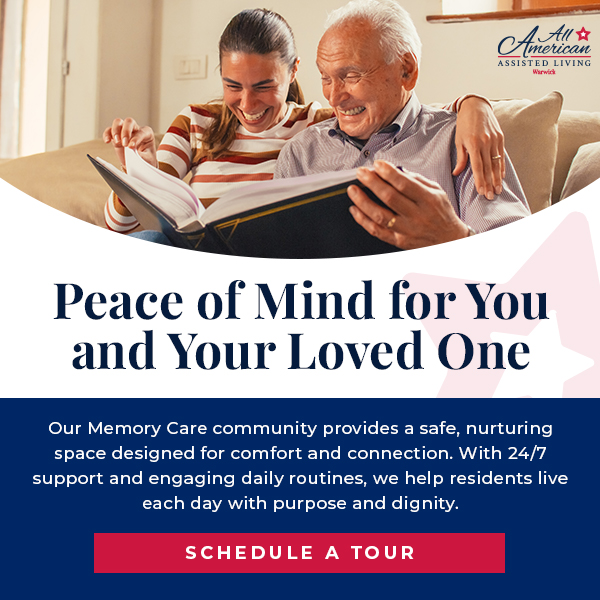Bringing up assisted living with an aging parent can be one of the most emotionally charged conversations you’ll ever have. Even when it’s clear that more support is needed, many older adults strongly resist the idea of leaving home.
These emotions are valid. The thought of leaving a familiar space, losing independence, or facing the unknown can be frightening.
As a family member, your role is to offer reassurance, involve them in the process, and gently guide the conversation toward what’s best for their health, happiness, and dignity.
Listening with empathy, involving a trusted third party, and highlighting the social and safety benefits of assisted living can ease resistance.
Offering choices empowers your loved one. You can also suggest a short-term stay to help reduce anxiety. If conversations stall, professional guidance can help move things forward.
Knowing When It’s Time for Assisted Living
It’s not always easy to know when a parent needs more help. Often, small signs build up over time. You may notice:
- Forgetfulness that affects safety
- Difficulty managing medications or meals
- Increased isolation or loneliness
- Frequent falls or health scares
- A decline in personal hygiene or home upkeep
These indicators suggest that independent living may no longer be sustainable—and that assisted living could provide a safer, more supportive alternative.
Even when the signs are clear, starting the conversation can feel like a minefield. That’s why it helps to approach it with compassion, patience, and a well-thought-out strategy.
Tips for Talking About Assisted Living
When your elderly parent refuses assisted living, it’s essential to lead with empathy, not pressure. The following 6 tips can help you create space for an open and productive conversation—one that supports both your parents’ autonomy and their evolving care needs.
Understand Their Concerns
Before jumping into solutions, pause and ask what’s really driving their resistance. Are they afraid of being forgotten? Worried about finances? Embarrassed about needing help?
Ask open-ended questions like:
- “What makes you hesitant about assisted living?”
- “What would make you feel more comfortable about getting support?”
Acknowledging these concerns—without trying to fix them right away—builds trust. A simple “I know this is a lot to think about, and I want to understand how you’re feeling” can go a long way.
Involve a Neutral Third Party
Sometimes, advice from a loved one can feel too emotionally loaded. Introducing a neutral professional, such as a doctor, social worker, or clergy member, can add clarity and credibility to the conversation. For example:
- A primary care doctor may explain why additional support is medically necessary
- A geriatric care manager can mediate family discussions & offer customized care options
- A trusted spiritual advisor may provide comforting insight
Your parent may be more willing to listen when the message comes from someone they view as impartial.

Highlight the Benefits
Many seniors associate assisted living with loss of independence, routine, or identity. Help reframe the discussion by focusing on how these communities can actually enhance their lifestyle.
- 24/7 safety & support that reduces risk & worry
- Daily social opportunities to prevent isolation
- Help with meals, housekeeping, & medications so they can enjoy life more
You might say, “It’s not about taking things away—it’s about giving you more time and energy to enjoy the things you love.”
Offer Choices & Control
Loss of control is one of the most difficult parts of aging. Help your parent feel empowered by involving them in the decision-making process.
Here’s how:
- Tour communities together so they can see what it’s really like
- Ask about preferences for meals, amenities, or apartment features
- Give them time to process the idea & avoid rushed decisions
By giving your parent ownership over the process, you help replace fear with curiosity and resistance with collaboration.
Suggest a Trial Period or Respite Stay
A permanent move may feel overwhelming, but a short-term stay is often more approachable. Many communities offer respite care or trial options that allow seniors to experience life in the community without a long-term commitment.
You can frame this as a chance to “just try it out.” It’s often during these stays that seniors realize how enriching and enjoyable assisted living can be.
Seek Professional Guidance
If you’ve had multiple conversations and still feel stuck, it may be time to bring in a geriatric care specialist. These professionals understand the emotional, physical, and logistical challenges of senior care transitions.
They can help:
- Facilitate family conversations
- Create a personalized care plan
- Provide unbiased advice tailored to your parents’ needs
Having a neutral guide can reduce friction, support better decision-making, and help everyone feel more confident about the next step.
Be Patient, Be Persistent
Convincing a parent to consider assisted living is rarely something that happens in one conversation. It often takes time, multiple discussions, and ongoing reassurance. It’s okay if they need to think it over, ask more questions, or take small steps.
What matters most is that they feel heard, respected, and supported. The goal isn’t to convince them—it’s to help them feel safe and cared for, no matter what decision they make.
We’re Here When You’re Ready to Explore the Next Step
When the time is right, having a trusted community to turn to can make all the difference.
All American Assisted Living at Warwick is here to support you with honest guidance, compassionate care, and a vibrant environment designed to enrich the lives of older adults.
Whether you’re just starting the conversation or ready to explore a short-term stay, our advisors are available to help you and your loved one navigate the path forward.
Schedule a visit today to tour our community, meet our team, and discover how we help seniors live with confidence, comfort, and connection.






